Arnold Hauser Famous Quotes
Reading Arnold Hauser quotes, download and share images of famous quotes by Arnold Hauser. Righ click to see or save pictures of Arnold Hauser quotes that you can use as your wallpaper for free.
Stendhal knows the source of his greatest happiness and his worst misery: the reflexivity of his spiritual life. When he loves, enjoys beauty, feels free and unconstrained, he realizes not only the bliss of these feelings but, at the same time, the happiness of being aware of this happiness. But now that he ought to be completely absorbed by his happiness and feel redeemed from all his limitations and inadequacies, he is still full of problems and doubts: Is that the whole story? - he asks himself. Is that what they call love? Is it possible to love, to feel, to be delighted and yet to observe oneself so coolly and so calmly? Stendhal's answer is by no means the usual one, which assumes the existence of an insurmountable gulf between feeling and reason, passion and reflexion, love and ambition, but is based on the assumption that modern man simply feels differently, is enraptured and enthusiastic differently from a contemporary of Racine or Rousseau. For them, spontaneity and reflexivity of the emotions were incompatible, for Stendhal and his heroes they are quite inseparable; none of their passions is so strong as the desire to be constantly calling themselves to account for what is going on inside them. Compared with the older literature, this self consciousness implies just as profound a change as Stendhal's realism, and the overcoming of classical-romantic psychology is just as strictly one of the preconditions of his art as the abolition of the alternative between the ro
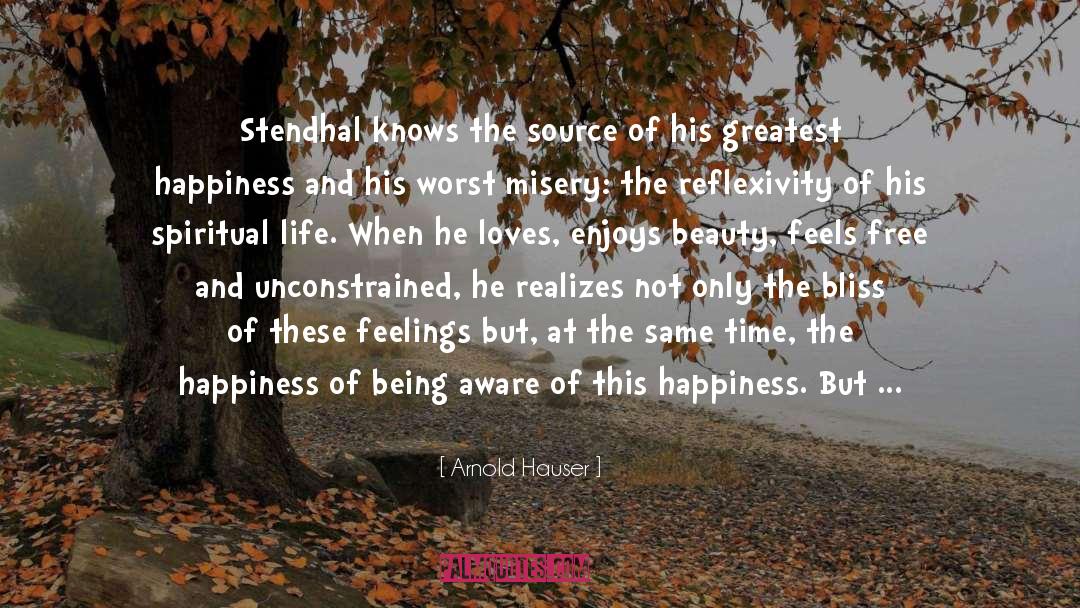
It must be obvious that in the high Middle Ages there was no possibility of the sort of naturalism which reduces the whole of reality to a mere sum of sense impressions any more than of a total replacement of feudal forms of rule by the bourgeois manner of life, nor again of any radical abolition of the spiritual dictatorship of the Church for a free and untrammelled secular culture. In art, as in all other fields of culture, what we find is just a certain balance between freedom and restraint. Gothic naturalism is an unstable equilibrium of world-affirming and world-denying impulses, just as the whole of chivalry is permeated by an inner contradiction, and just as the whole religious life of the period fluctuates between dogma and inwardness, between clerical creeds and lay piety, between orthodoxy and subjectivism. The same inner contradiction, the same spiritual polarity, manifests itself in all these social, religious and artistic oppositions.
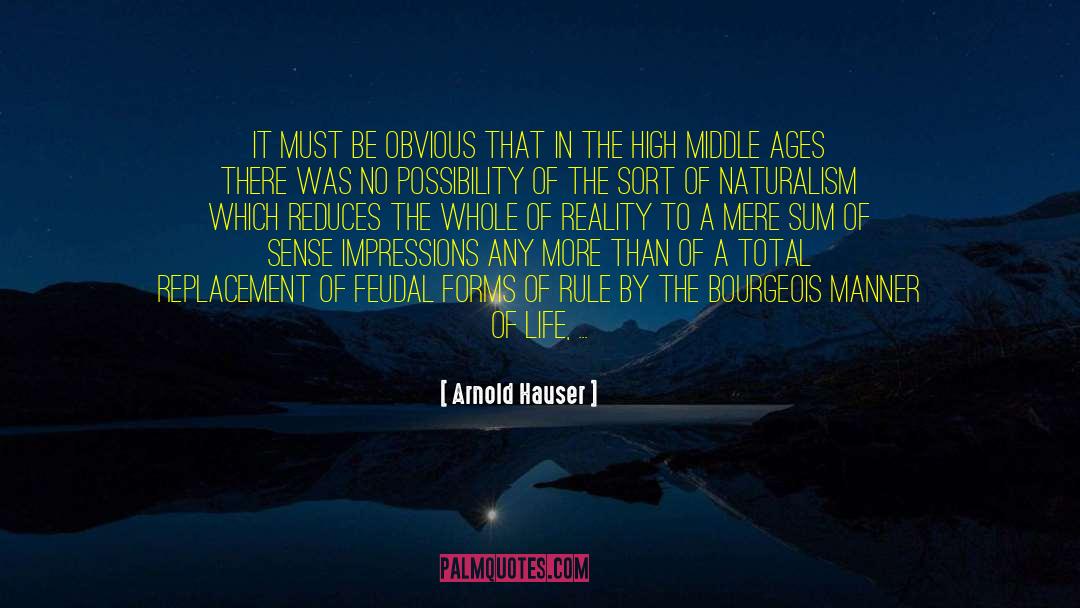
Every honest attempt to discover the truth and depict things faithfully is a struggle against one's own subjectivity and partiality, one's individual and class interests; one can seek to become aware of these as a source of error, while realizing that they can never be finally excluded.

If we do not know or even want to know the aims that the artist was pursuing through his work – his aim to inform, to convince, to influence people – then we do not get much farther in understanding his art than the ignorant spectator who judges a football game simply by the beauty of the players' movement.
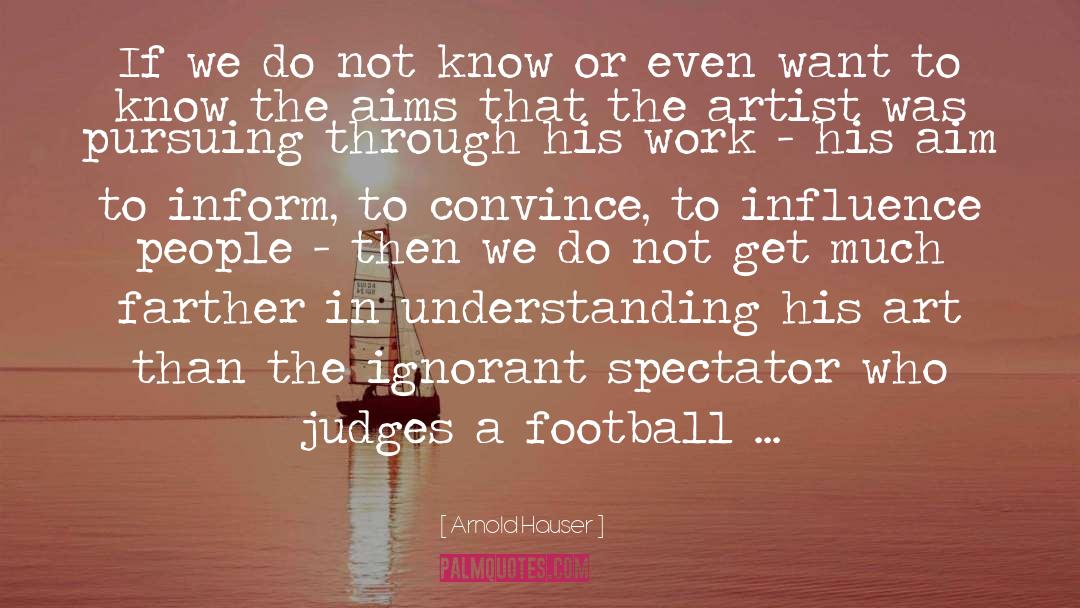
Although women participate in literary social life from the very beginning, they are not the centre of the courtly salons of the Renaissance; and later on, the age of the middle-class salon, they become the centre in quite a different sense than in the age of chivalry. Incidentally, the cultural importance of women is only another expression of the rationalism of the Renaissance. They are regarded as the intellectuals equals of men, but not as their superiors. "Everything that men can understand, can also be understood by women," to quote from the Cortegiano; but the gallantry which Castiglione demands of the courtier has no longer much in common with the woman-worship of the knights. The Renaissance is a masculine age; women like Lucrezia Borgia, who kept court in Nepi, or even Isabella dEste, who was the centre fo the court in Ferrara and Mantua and who not only had a stimulating influence on the poets of her entourage but also seems to have been a connoisseur of the plastic arts, are exceptions. Nearly everywhere the leading patrons and friends of art are men.
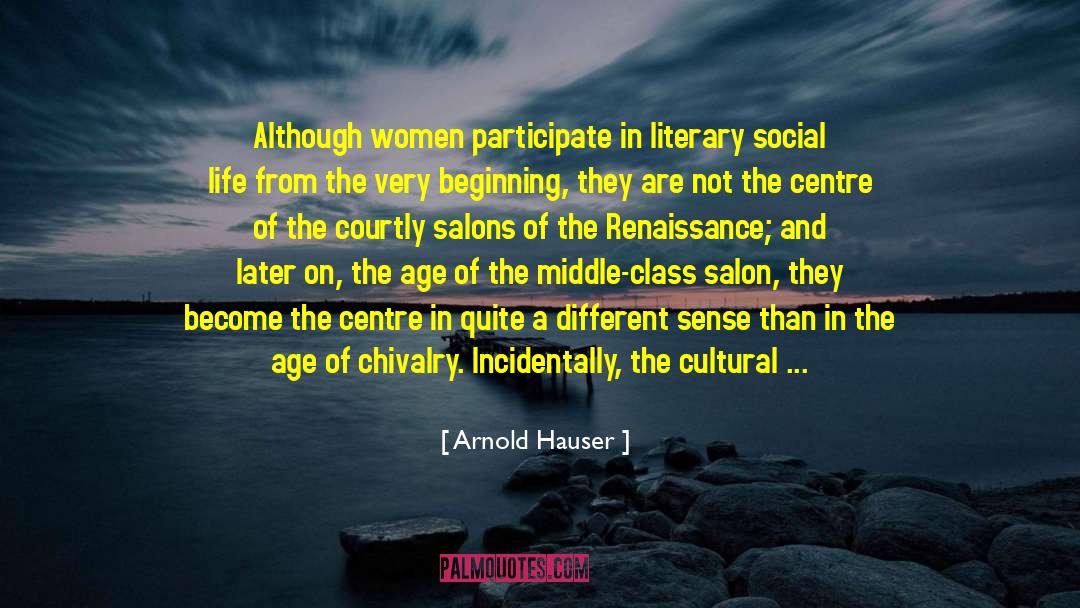
Just as his sentimentalism is profoundly middle-class and plebeian, but his irrationalism reactionary, so his moral philosophy also contains an inner contradiction: on the one hand, it is saturated with strongly plebeian characteristics, but on the other, it contains the germ of a new aristocratism. The concept of the 'beautiful soul' presupposes the complete dissolution of kalo-kagathia and implies the perfect spiritualization of all human values, but it also implies an application of aesthetic criteria to morality and is bound up with the view that moral values are the gift of nature. It means the recognition of a nobility of soul to which everyone has a right by nature, but in which the place of irrational birthrights is taken by an equally irrational quality of moral genius. The way of Rousseau's 'spiritual beauty' leads, on the one hand, to characters like Dostoevsky's Myshkin, who is a saint in the guise of an epilectic and an idiot, on the other, to the ideal of individual moral perfection which knows no social responsibility and does not aspire to be socially useful. Goethe, the Olympian, who thinks of nothing but his own spiritual perfection, is a disciple of Rousseau just as much as the young freethinker who wrote Werther.

The price of poetry is life.
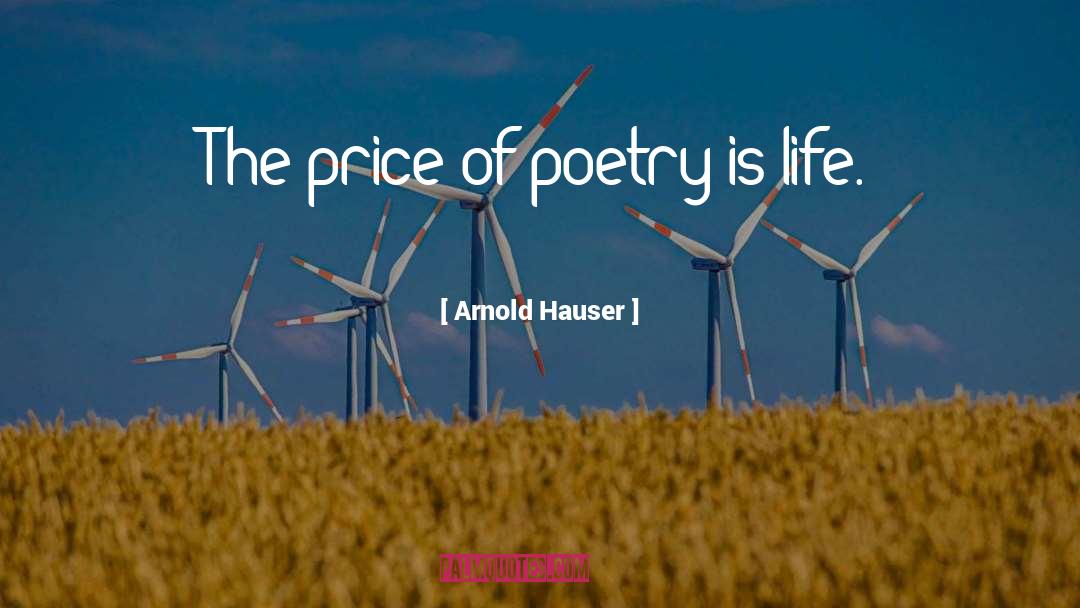
The new type of capitalists - the industrial leader - develops new talents with his new function in economic life and, above all, a new discipline and evaluation of labour. He allows commercial interests to recede to a certain extent and concentrates on the internal organization of his factory. The principle of expediency, methodical planning and calculability, which had become very important in the economy in the leading countries since the fifteenth century, now becomes all-powerful. The employer disciplines himself just as ruthless as he does his workmen and employees, and becomes just as much the slave of his concern as his staff. The raising of labour to the level of the ethical force, its glorification and adoration, is fundamentally nothing but the ideological transfiguration of the striving for success and profit and an attempt to stimulate even those elements who share least in the fruits of their labour into enthusiastic co-operation. The idea of freedom is part of the same ideology.

In interpreting a work of art, we draw upon our own aims and endeavors, inform it with a meaning that has its origin in our own ways of life and thought. In a word, any art that really affects us becomes to that extent modern art.

